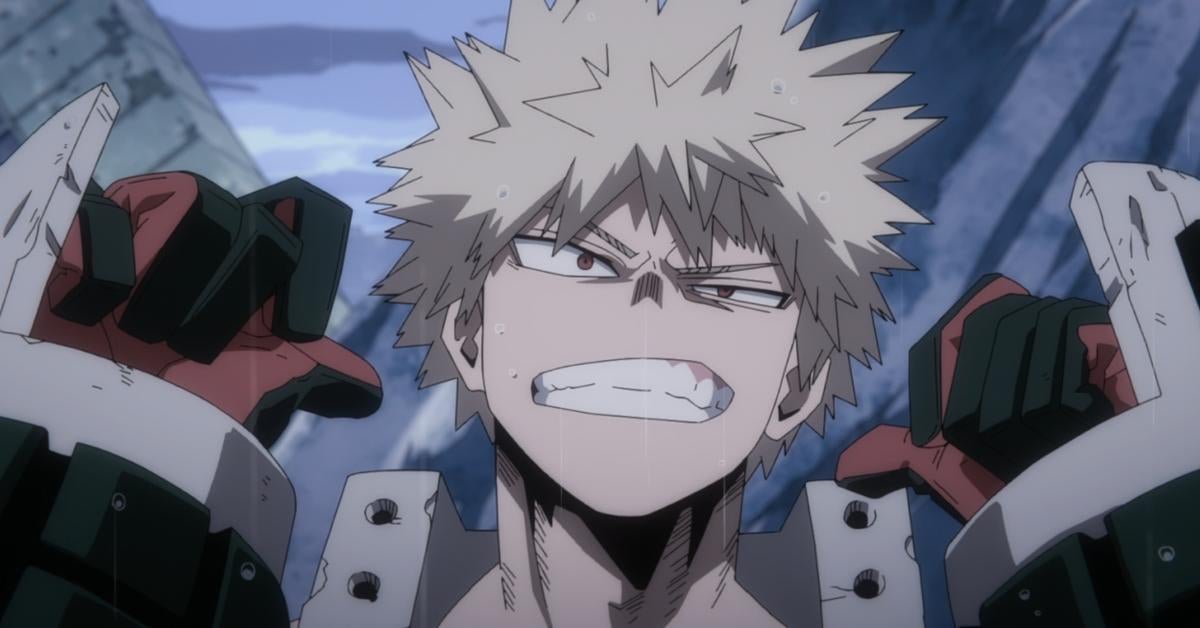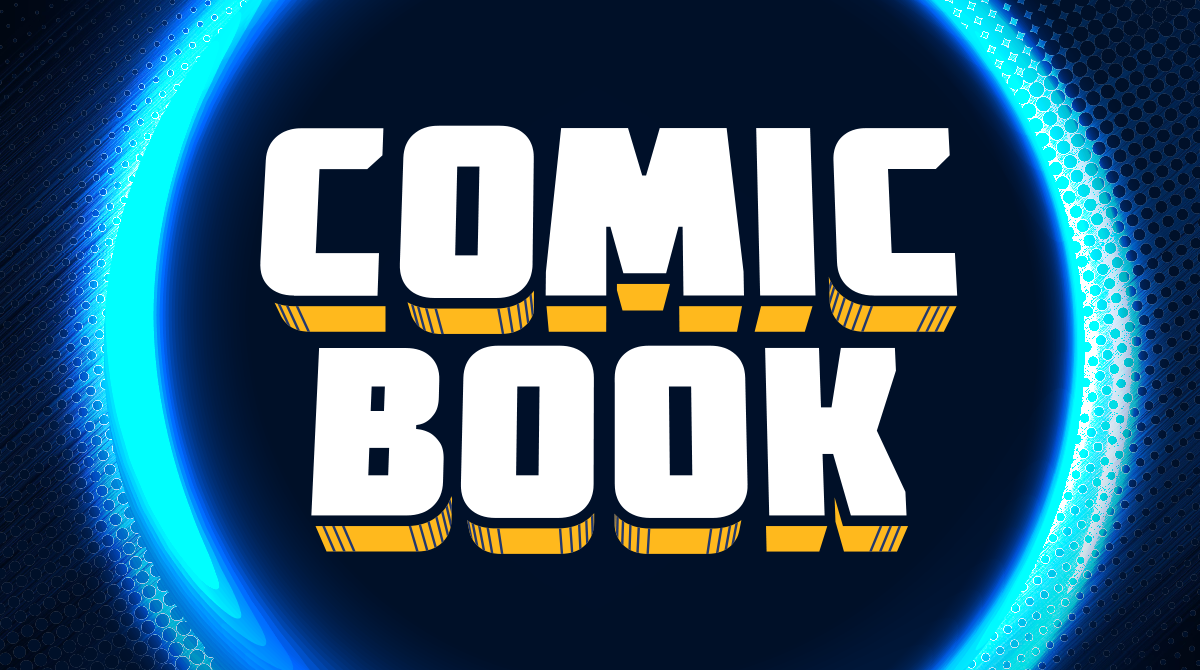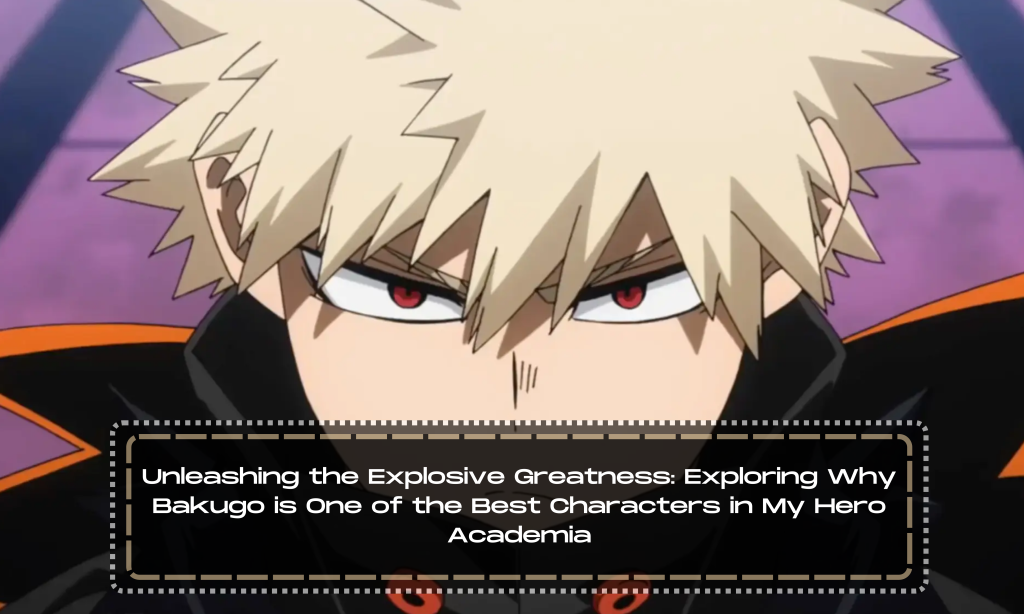Unleashing the Explosive Greatness: Exploring Why Bakugo is One of the Best Characters in My Hero Academia

Just imagine: due to what you’ve learned as a child you’ve grown up your whole life thinking that you are only worthwhile as a person if you achieve a very very difficult set of goals consistently throughout your life Anything resembling failure is unacceptable so you work incessantly towards success.
But slowly the difficulty of that goal starts to increase and your chances of achieving it start to look smaller, and as someone who has lived all your life experiencing nothing but success, you have no idea how to deal with the situation. You have no capability of proper expression because you’ve had no need for it in life until this point.
You lash out words crippled by your pride and refuse to accept the help of others because you believe that accepting it will discredit your worth even further. You know that you are flawed and that you can do better, but you just don’t know how. My Hero Academia’s Bakugou is abrasive, violent, and pompous.
He is extremely difficult to get along with in universe and many dislike his character simply because he’s so loud and obnoxious. But as long as there is a narrative reason and merit for his behavior, why does that mean that he cannot be well-written? The contrast between the lovably wholesome deeply good characters of My Hero Academia’s protagonistic cast and Katsuki Bakugou just seems to be too much for many to find him anything other than vastly unlikable.
And I’d reckon that it restricts some from really seeing what makes his character tick, but in broader global terms this is not a commonly shared sentiment. With Bakugou finishing third, first, and first among Japanese readers for Shounen Jump’s character popularity polls and fifth and first for American readers.
For a great number of manga fans, at the very least something about Bakugou is infectious enough for so many to like him so much despite being a character displaying traits that would be described as unlikable, but why is that? Bakugou grew up admiring All Might and had ambitions from a young age to be a hero like him. He has always been intelligent with knowledge, combat skills, and strategic aptitude of impressive degree.
He has always shown skill in basically everything and as a child he was over praised by his peers for the smallest things in comparison to everyone his age, especially Deku He was viewed to be vastly superior. As such he grew to develop warped pathologically high expectations for himself and he conflates his purpose in life with his objective achievements.
If people tell you something enough, you sometimes begin to believe it, as unrealistic as it may sound, and this is compounded for a young kid who enjoyed the over-the-top hype around himself. For Bakugou, if he doesn’t consistently reach his unbelievably high expectations to become as strong as All Might, his life is pointless.
So his bullying, as terrible as it is, makes a great deal of sense It puts him on a higher playing field. But this clearly stunted his development. It’s impossible to grow without hurdles, and when there are obstacles in Bakugou’s path that he cannot control he doesn’t know how to deal with them apart from expressing his rage because he has never really experienced this lack of control or these problems before.
Habit is exceedingly difficult to break. His amazing mom postulates this, that Bakugou has to be taken down a peg and needs a reality check to grow. There’s a difference between endeavors(haha) and expectations. Endeavors are goals, and many characters in My Hero Academia have the highest of endeavors and have become totally functional young people because despite their personal struggles.
They know how to temper expectation and deal with personal failure with regards to those endeavors. On the other hand, Bakugou’s expectations of himself are so high because the praise of his past years artificially altered them. Now, of course, this doesn’t absolve him of any blame for his confrontational and dickish attitude, but it does give him reasons for it. It is compensation.

This manifests as him only being at peace and happy and satisfied with himself if he is superior to everyone else, scorning any sign of vulnerability and seeing it as something to be scoffed at. He must not show weakness, he must not accept or require help from anyone, he must be better. But enrolling in a program in school with so many special individuals trying to prove themselves and achieve their own dreams, puts his self-worth on thin ice because of their skill and this develops into an inferiority complex.
The clear improvement of students like Todoroki and especially Deku due to their past history is something that shatters Bakugou’s opinion of himself because he cannot do anything but compare. This makes it easy to understand his mocking attitude and his tendency to look down upon his classmates, especially Deku.
Fully reaching ahead when he starts to realize that Deku is approaching his level, or in realizing that Todoroki isn’t performing his best against him Concurrently, Deku’s steady rise in strength and skill is a reminder that Bakugou is slowing down and at risk of falling behind and by extension, at risk of losing grasp of his life’s purpose. And he is completely sobered and agonizingly envious to know that his hero has chosen someone that he sees as a thoroughly undeserving rival to be his protege.
He doesn’t care what others think of him, but he needs to perform at his absolute best to feel like he is doing something with his life and that requires comparison to his classmates. He feels that doing anything other than looking down upon others put him on level pegging with them, showing his weakness.
It’s not that he doesn’t have empathy. It’s just that he represses it. This is why he blocks himself from connecting with others. It’s quite a sad misconception of worth, but very gradually an erosion is starting to occur. People like Deku and All Might, people like Kirishima, are ever-so-slightly starting to pull him in.
And the beauty of his character is slowly seeing him learn that connecting with and respecting others is not a weakness at all. And that weakness itself may not be such a bad thing. During All Might’s fight with All for One, his look at a pained Deku is not one of scorn but one of acknowledgement and mutual feelings.
He complained about having to rely on the others after being saved by Kirishima, Deku, and Iida, but in the moment it could not have been clearer that he was relieved and grateful for it. Maybe he is starting along the path towards seeing the strength of his colleagues not as a threat but instead as motivation and encouragement.
It’s characteristically very subtle to contrast with his bombastic screeching, but he is slowly learning to appreciate the joys of human connection, maturing and correcting the harmful over-the-top praise and expectations he experienced when he was younger. Bakugou’s developmental arc in essence is a portrait of a young man coming to grips with the fact that his value as an Individual as he perceives it is at risk of being shattered.

Apart from his personality, no wonder he acts out. It’s a terrifying concept and an entirely sympathetic one, which along with some other reasons explains his popularity. But he wouldn’t be Bakugou if he didn’t persevere. Whether it be conscious or not, he is completely rethinking the way he approaches life to reintegrate his goal with what he is learning.
He is changing. If at present his only goal was to be the best why did he flip the bird to the League of Villains? Because he feels identification to UA. A tiny bit of a force pulling him back there from those who care for him and a connection to be like All Might. Not just in terms of power, but for what he stands for.
He may not yet realize this but actions speak louder than words to a huge extent for a person like Bakugou. He is nothing close to a villain and for me one of the most enticing plot threads in My Hero Academia has always been following his personal journey towards growth and happiness. His arc being a nice bit of contrasting balance and integration for a series about so many individual journeys coalescing for the sake of ideals and, most interestingly in this case, peace.
A personal peace of mind as much as a societal peace. Of course this development is slow-moving because you can’t just change your entire life’s approach with the snap of a finger and when he isn’t learning, Bakugou goes back to his old habit of screaming everyone’s ear off because that’s simply his nature.
Could he be going about this better? Absolutely. Should he be absolved of blame for being an asshole just because of his situation? Of course not. But he is doing his best and the growth is in the little moments in between those outbursts. Moments that are becoming more frequent. He is getting there.
I can’t speak for anyone else but in time all I can hope for is that Bakugou will find himself. Not that he will dismiss his winning mentality, because he wouldn’t be Bakugou if he didn’t have an insatiable desire to prove and improve himself, but that he will realize the values of empathy. Realize that the connections we form can empower us as much as anything else.
Many thanks for reading.
That’s me, Andreea Blaga, author of the blog anime-everything.com. I work as a content creator in the US. I am also passionate about Japanese Anime.


Related post
Character Study: Korra and Aang’s Legacy
In the richly woven tapestry of the “Avatar” universe, the characters of Korra and Aang...
Jul
Islands of Wonder: Exploring the Unique Geography of One Piece
Enter the vibrant world of One Piece, a beloved manga and anime series created by...
Jul
Unveiling ‘The Eminence in Shadow’: A Dive into its Intriguing Premise
“The Eminence in Shadow” is a light novel series written by Daisuke Aizawa and illustrated...
Jul
Dragon Ball Z: A Cultural Phenomenon Through the Ages
Since its debut in 1989, “Dragon Ball Z” has become a cultural phenomenon that transcends...
Jul
Unleashing the Chainsaw: A Deep Dive into Chainsaw Man’s Gripping Plot
In the realm of dark fantasy manga, few series have captivated readers quite like Tatsuki...
Jul
Aang’s Journey: From Reluctant Hero to Avatar of Peace
In the world of animated series, few have captured the hearts and minds of viewers...
Jul